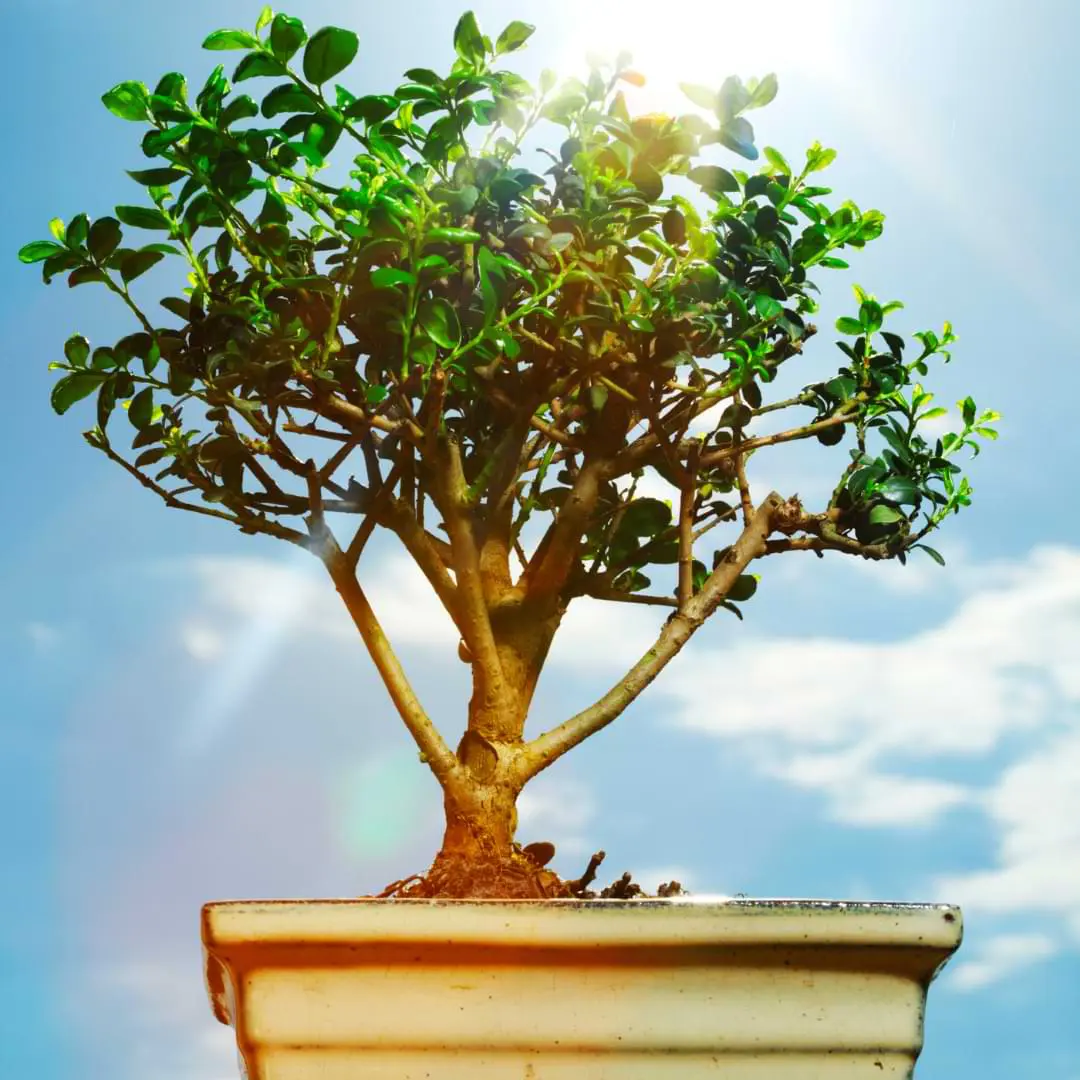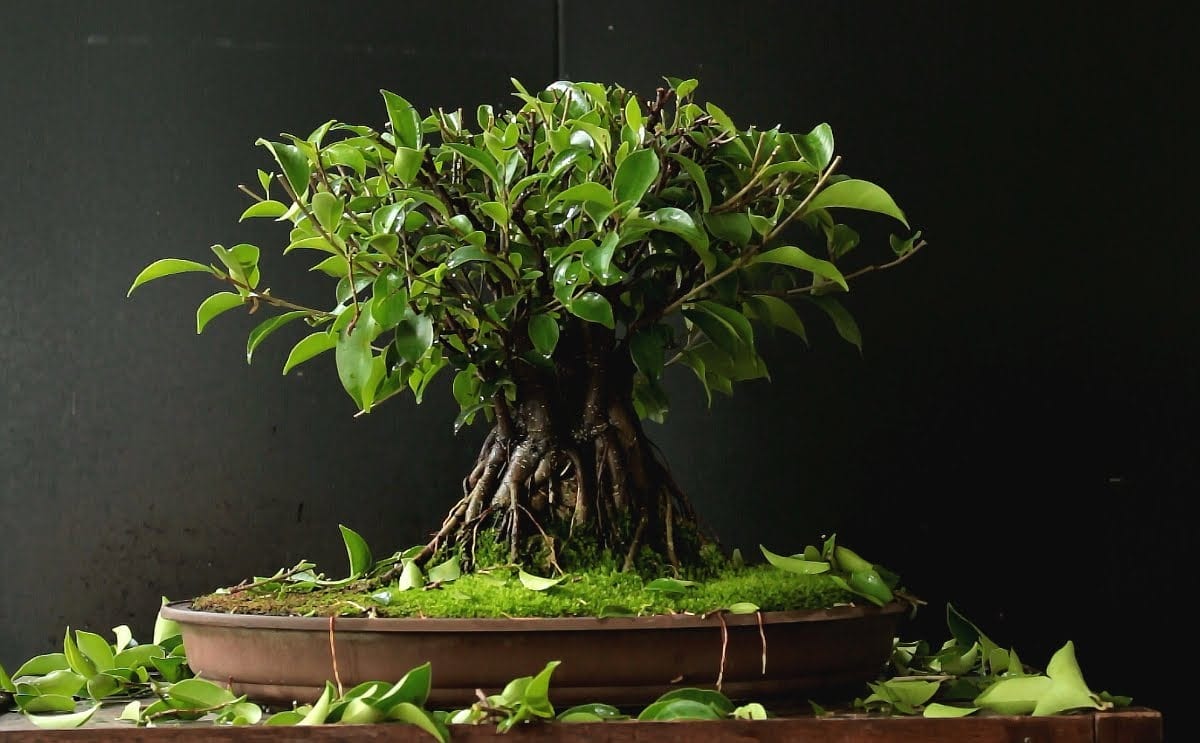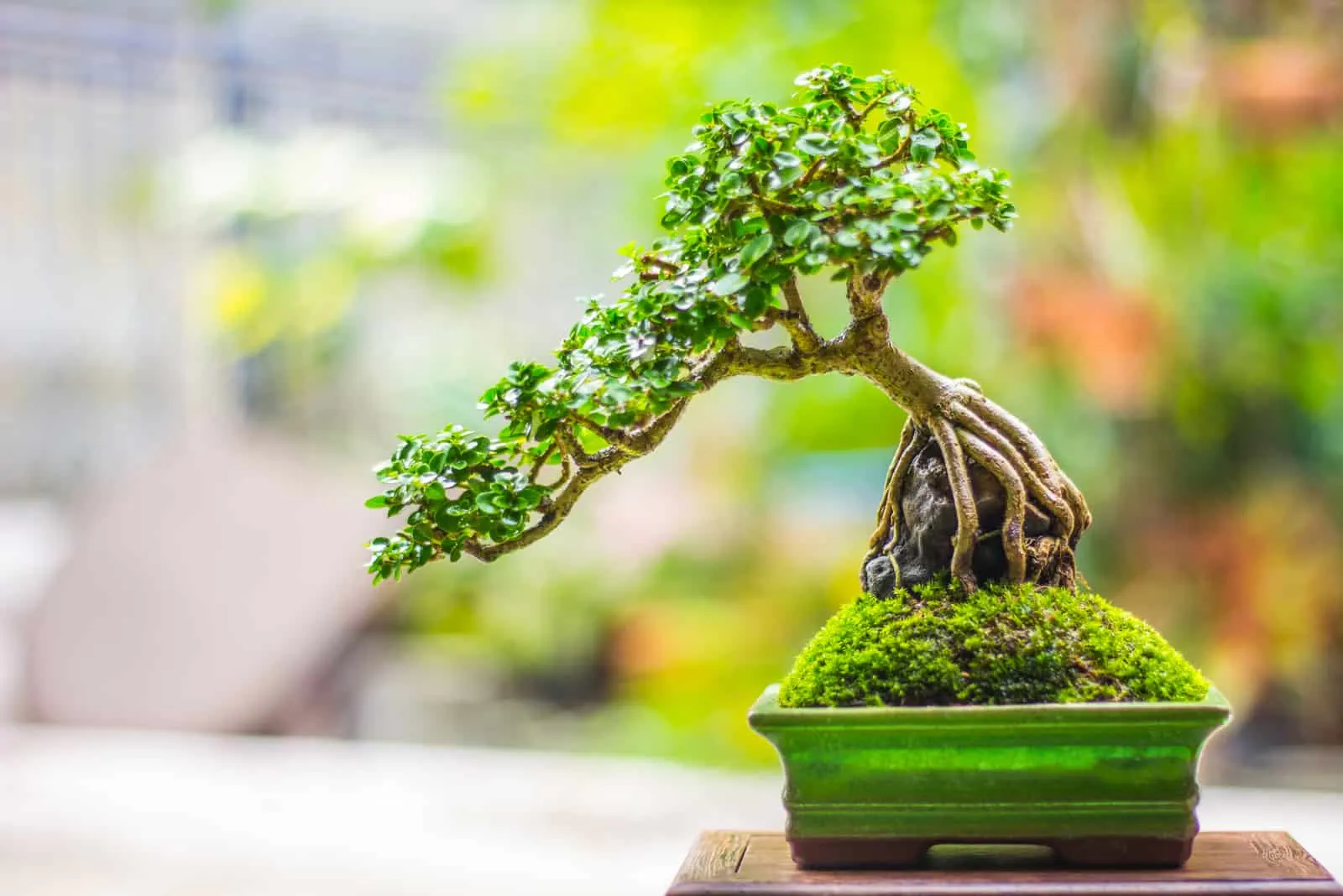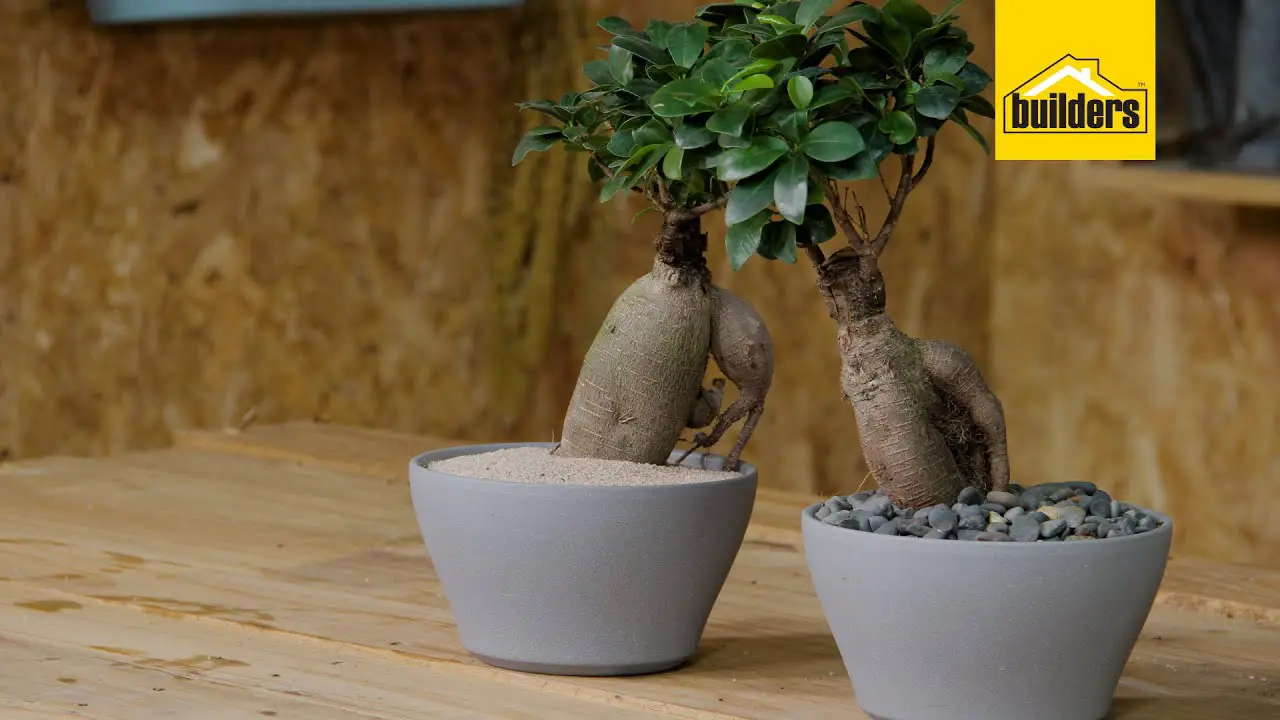When it comes to caring for ficus bonsai trees, one of the most important factors to consider is sunlight. The amount and quality of light that these small trees receive can greatly impact their growth and overall health. In this article, we will delve into the importance of sunlight for ficus bonsai, exploring the benefits it provides and how to ensure your tree gets the right amount of exposure.
Whether you’re a beginner or an experienced bonsai enthusiast, understanding the role of sunlight in the life of your ficus bonsai is crucial for its well-being. So let’s dive in and discover why sunlight is so essential for these extraordinary miniature trees.
The Importance of Sunlight for Ficus Bonsai
As a bonsai enthusiast, I have come to understand the crucial role that sunlight plays in the growth and development of ficus bonsai trees. Sunlight is not only a source of energy for these plants but also a determining factor in their overall health and appearance. In this article, I will explore the sunlight requirements of ficus bonsai, the effects of sunlight on their growth, how to find the right amount of sunlight for your bonsai, the risks of insufficient and excessive sunlight, as well as signs of optimal sunlight exposure.
Understanding the Sunlight Requirements of Ficus Bonsai
Ficus bonsai, like any other plant, have specific sunlight requirements to thrive. They are native to tropical and subtropical regions, where they are exposed to abundant sunlight. Therefore, ficus bonsai generally need bright and direct sunlight for at least a few hours each day to meet their energy needs. However, it is important to strike a balance between providing enough sunlight and preventing excessive exposure that can be detrimental to their health.
Effects of Sunlight on Ficus Bonsai Growth
Sunlight plays a vital role in various aspects of ficus bonsai growth, contributing to their overall vigor and vitality. Let’s examine some of the important effects sunlight has on ficus bonsai:
1. Photosynthesis and Energy Production
Through the process of photosynthesis, sunlight provides ficus bonsai with the energy they need to carry out essential biological processes. Chlorophyll in the leaves absorbs light and converts it into energy that fuels growth, metabolism, and other physiological functions. Sufficient sunlight ensures that ficus bonsai can produce and store enough energy to maintain their health and promote growth.
2. Foliage Development and Leaf Size
The amount and quality of sunlight that ficus bonsai receive directly impact their foliage development. With adequate sunlight, these trees are able to produce lush and vibrant leaves. Sunlight also influences the size of the leaves, as they tend to be larger when the bonsai is exposed to more intense light. However, it is important to note that excessive sunlight can lead to leaf scorching and browning, so finding the right balance is key.

3. Coloration and Pigmentation
Sunlight affects the coloration and pigmentation of ficus bonsai leaves. Bright and direct sunlight enhances the production of pigments responsible for their characteristic green color. Lack of sunlight can result in pale or yellowing leaves, indicating a lack of chlorophyll production. Monitoring and providing the appropriate sunlight will ensure that your ficus bonsai maintains its vibrant coloration.
4. Branching and Compact Growth
Sunlight is crucial for promoting branching and compact growth in ficus bonsai. Adequate exposure to sunlight stimulates the production of auxins, a class of plant hormones that influence branching. Additionally, the intensity of sunlight affects the length of internodes, the spaces between leaves and branches. With sufficient sunlight, ficus bonsai can achieve a compact and well-structured appearance.
Finding the Right Amount of Sunlight for Your Ficus Bonsai
To ensure the optimal growth and health of your ficus bonsai, it is important to consider various factors when determining the right amount of sunlight. These factors include the species and variety of your bonsai, its native habitat, whether it is grown indoors or outdoors, and other factors that can affect the intensity of sunlight it receives.
1. Native Habitat
Understanding the native habitat of your ficus bonsai species is crucial in determining its sunlight requirements. Ficus trees are native to tropical and subtropical regions, where they are exposed to abundant sunlight. Mimicking their natural environment by providing bright and direct sunlight for a few hours each day is usually ideal.

2. Bonsai Species and Varieties
Different species and varieties of ficus bonsai may have varying sunlight requirements. For example, Ficus retusa (also known as the Chinese Banyan) prefers moderate sunlight, while Ficus microcarpa (also known as the Ginseng Ficus) can tolerate more direct sunlight. Researching the specific requirements of your bonsai species and variety will help you determine the optimal amount of sunlight it needs.
3. Outdoor vs. Indoor Ficus Bonsai
The location of your ficus bonsai, whether it is grown outdoors or indoors, greatly impacts its sunlight exposure. Outdoor bonsai generally have easier access to natural sunlight, while indoor bonsai may require additional measures to provide sufficient light. However, it is important to note that even outdoor bonsai may need to be protected from excessive sunlight during certain times of the day or year.
4. Factors Affecting Sunlight Intensity
Several factors can affect the intensity of sunlight that reaches your ficus bonsai, even in outdoor settings. These factors include the orientation of the bonsai (facing east, west, north, or south), the presence of shade-providing structures or trees, as well as the time of day and time of year. Observing and adjusting the bonsai’s placement and exposure based on these factors will help you find the optimal amount of sunlight.
The Risks of Insufficient Sunlight
Insufficient sunlight can have detrimental effects on the health and growth of ficus bonsai. When these trees do not receive enough sunlight, they may experience a range of issues that can affect their overall vitality. Let’s explore some of the risks associated with insufficient sunlight:

1. Reduced Photosynthesis and Energy Storage
Without adequate sunlight, ficus bonsai are unable to carry out photosynthesis efficiently. This results in reduced energy production and storage, leading to weak growth and compromised overall health. Insufficient sunlight can also hinder the bonsai’s ability to absorb and utilize nutrients effectively.
2. Long, Weak Internodes
Internodes are the spaces between leaves and branches, and their length is influenced by the intensity of sunlight. When ficus bonsai do not receive enough sunlight, the internodes can become long and weak, resulting in a lanky and unappealing appearance. This can also negatively affect the overall structure and compactness of the bonsai.
3. Leaf Loss and Weak Foliage Development
Inadequate sunlight can cause leaf loss and weak foliage development in ficus bonsai. Without sufficient light, the bonsai may shed leaves or produce sparse and small leaves. This can detract from the overall beauty of the bonsai and indicate its struggle to thrive.
4. Increased Vulnerability to Pests and Diseases
Insufficient sunlight weakens the immune system of ficus bonsai, making them more susceptible to pests and diseases. When bonsai trees are lacking in essential nutrients and energy due to inadequate sunlight, they become more vulnerable to infestations and infections. This can lead to further decline in health and, in severe cases, even the death of the bonsai.

Preventing Sunburn and Heat Stress
While sunlight is vital for the growth of ficus bonsai, excessive exposure can also be harmful. To prevent sunburn and heat stress, it is important to take appropriate measures to protect your bonsai. Here are some strategies to consider:
1. Gradual Acclimatization to Sunlight
If your ficus bonsai has been grown in a shaded environment, it is necessary to introduce it to sunlight gradually. Sudden exposure to intense sunlight can cause sunburn and shock the bonsai. Begin by placing it in an area with filtered sunlight and gradually increase the exposure over a period of weeks or months.
2. Providing Shade During Peak Sun Hours
During the hottest hours of the day, usually between late morning and early afternoon, it may be beneficial to provide shade for your ficus bonsai. This can be achieved by placing the bonsai under a shade cloth, umbrella, or in a location where it is sheltered from direct sunlight. By protecting the bonsai during peak sun hours, you can avoid excessive heat stress.
3. Proper Watering and Moisture Retention
Proper watering is crucial in maintaining the health of ficus bonsai and preventing dehydration from excessive sunlight. Regularly monitor the moisture level of the soil and adjust your watering schedule accordingly. Mulching the soil surface can also help retain moisture and regulate temperature, especially during periods of intense sunlight.

4. Using Protective Covers
For outdoor bonsai, especially during extreme weather conditions, protective covers can be used to shield ficus bonsai from excessive sunlight. These covers are typically made of materials that can filter or diffuse sunlight while still allowing airflow. It is important to ensure that the cover does not trap heat and moisture, as this can lead to fungal growth and other issues.
The Consequences of Excessive Sunlight
While ficus bonsai need sunlight to thrive, excessive exposure can have negative consequences. It is important to be aware of the risks associated with too much sunlight and take appropriate measures to protect your bonsai. Let’s explore some of the consequences of excessive sunlight:
1. Leaf Scorching and Browning
One of the most noticeable effects of excessive sunlight is leaf scorching and browning. When ficus bonsai are exposed to intense sunlight for prolonged periods, the leaves can get burned, resulting in unsightly brown patches or overall discoloration. This can significantly detract from the bonsai’s aesthetic appeal.
2. Premature Aging and Leaf Drop
Excessive sunlight can cause premature aging and leaf drop in ficus bonsai. When the bonsai is constantly subjected to intense sunlight, the leaves may age more rapidly and become brittle. This can lead to premature leaf drop, leaving the bonsai looking barren and unhealthy.
3. Root Dehydration and Soil Issues
Too much sunlight can lead to increased evaporation, resulting in root dehydration in ficus bonsai. When the roots are not able to absorb enough water, the bonsai can suffer from drought stress and nutrient deficiencies. Excessive sunlight can also increase soil temperature, potentially leading to soil issues such as poor drainage or root rot.
4. Detrimental Effects on Foliage and Branching
Excessive sunlight can negatively impact the overall health and appearance of ficus bonsai foliage and branching. The leaves may become pale or bleached, signaling a lack of chlorophyll production. Additionally, the intensity of sunlight can affect branching patterns, with excessive exposure potentially causing weak or irregular growth.
Signs of Optimal Sunlight Exposure
Providing the right amount of sunlight for your ficus bonsai will result in a healthy and thriving tree. Look out for these signs to determine if your bonsai is receiving optimal sunlight exposure:
1. Vibrant and Healthy Foliage
Ficus bonsai exposed to the right amount of sunlight will have vibrant, lush, and healthy foliage. The leaves should be a vibrant green color, indicating proper chlorophyll production. The presence of new growth and a full canopy are also signs of optimal sunlight exposure.
2. Compact Growth and Branch Development
When ficus bonsai receive the appropriate amount of sunlight, they will exhibit compact growth and well-developed branching patterns. The internodes should be of moderate length, contributing to an overall balanced and aesthetically pleasing appearance.
3. Balanced Internode Length
Optimal sunlight exposure results in balanced internode length, with neither excessively long nor excessively short distances between leaves and branches. This indicates that the bonsai is receiving enough sunlight to support healthy growth and structure.
4. Overall Vigor and Resilience
A ficus bonsai that receives optimal sunlight exposure will showcase overall vigor and resilience. It will be able to withstand environmental stressors, such as temperature fluctuations, and exhibit a healthy, robust appearance. This is a testament to the favorable impact of sunlight on its growth.
In conclusion, understanding the importance of sunlight for ficus bonsai is crucial for their successful cultivation. Sunlight provides the energy necessary for photosynthesis and influences various aspects of their growth, including foliage development, branching, and overall vigor. By considering factors such as native habitat, bonsai species and variety, and indoor or outdoor cultivation, you can determine the right amount of sunlight for your bonsai. It is essential to be aware of the risks of insufficient or excessive sunlight and take appropriate measures to prevent sunburn, heat stress, and other negative consequences. By observing the signs of optimal sunlight exposure, such as vibrant foliage, compact growth, and overall resilience, you can ensure the health and beauty of your ficus bonsai.
What Are The Benefits of Bonsai Microcarpa for Beginners?


